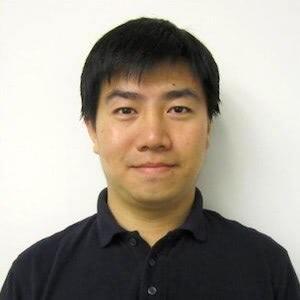- Undergraduate
Bachelor's Degrees
Bachelor of ArtsBachelor of EngineeringDual-Degree ProgramUndergraduate AdmissionsUndergraduate Experience
- Graduate
Graduate Experience
- Research
- Entrepreneurship
- Community
- About
-
Search
All Thayer Events
Special Seminar: Intelligent Digital Healthcare Systems—Sensing, Computing, and Communication
Jan
23
Monday
3:30pm - 4:30pm ET
Online
ZOOM LINK
Meeting ID: 977 7792 8244
Passcode: 813105
Wearable medical devices are expected to provide automatic monitoring and processing of physiological signals, and more importantly, to be capable of identifying abnormal signals and contacting medical systems when necessary. Such devices are the key components in the future "unmanned medical nursing systems." Machine learning is a promising solution in digital health systems and has recently been applied to the continuous monitoring of physiological signals with on-sensor processing. Machine learning algorithms that can accommodate real-time processing without too much data storage and data movement are preferred in wearable sensor applications.
This talk presents novel smart wearable wireless biosensor frameworks to address sensing, processing, and communication problems systematically by exercising three complementary research objectives:
- Analog-to-feature converter for electrocardiography (ECG) sensing based on dynamic predictive level-crossing sampling sensors;
- Linear-kernel rotation support vector machine for patient-specific data with on-sensor inference for arrhythmia detection; and
- Power-efficient encoder and decoder for wireless asynchronous transmission of oversampling data.
The key idea is to exploit the advantages of combining oversampling sensors and power-efficient machine learning algorithms for a hardware-friendly framework in wireless biomedical sensors.
About the Speaker(s)
Wei Tang
Associate Professor of Electrical and Computer Engineering, New Mexico State U

Wei Tang is the Paul W. and Valerie Klipsch Distinguished Professor at New Mexico State University. He received his BS in microelectronics from Peking University in 2006, and his PhD in electrical engineering from Yale in 2012. He joined the Klipsch School of Electrical and Computer Engineering at New Mexico State University as an assistant professor in 2012. His research interests include biomedical circuits and systems, optical/vision/motion sensors and sensing systems, analog/mixed-signal/digital/RF integrated circuits, and hardware machine learning systems. He was the recipient of the NSF Faculty Early Career Award in 2017. Tang is an associate editor of IEEE Sensors and IEEE Transactions on Biomedical Circuits and Systems.
Contact
For more information, contact Ashley Parker at ashley.l.parker@dartmouth.edu.
